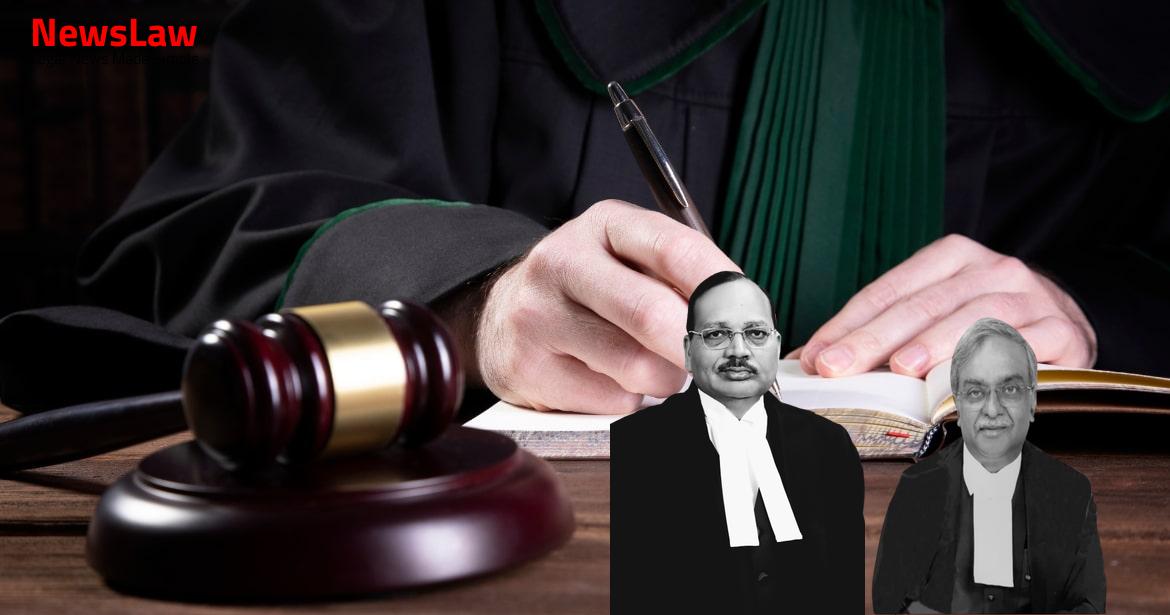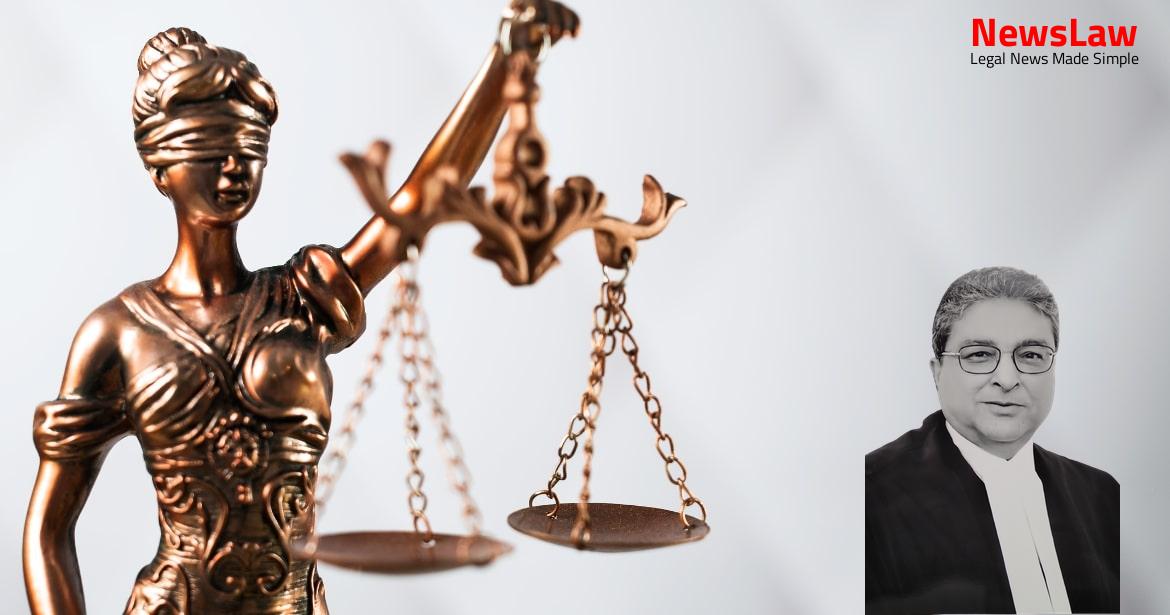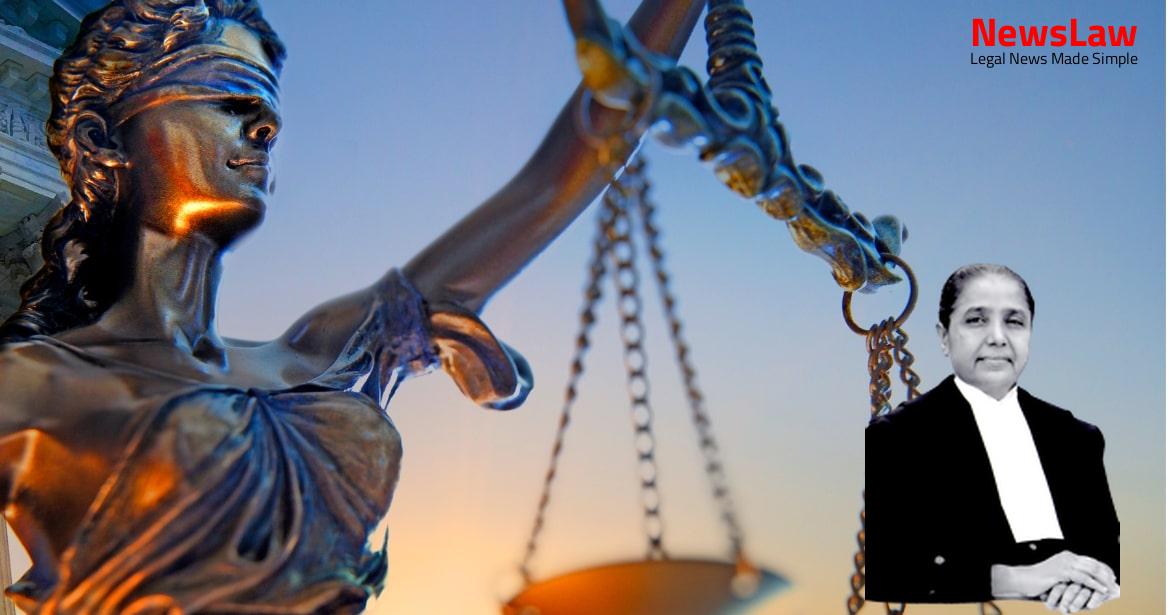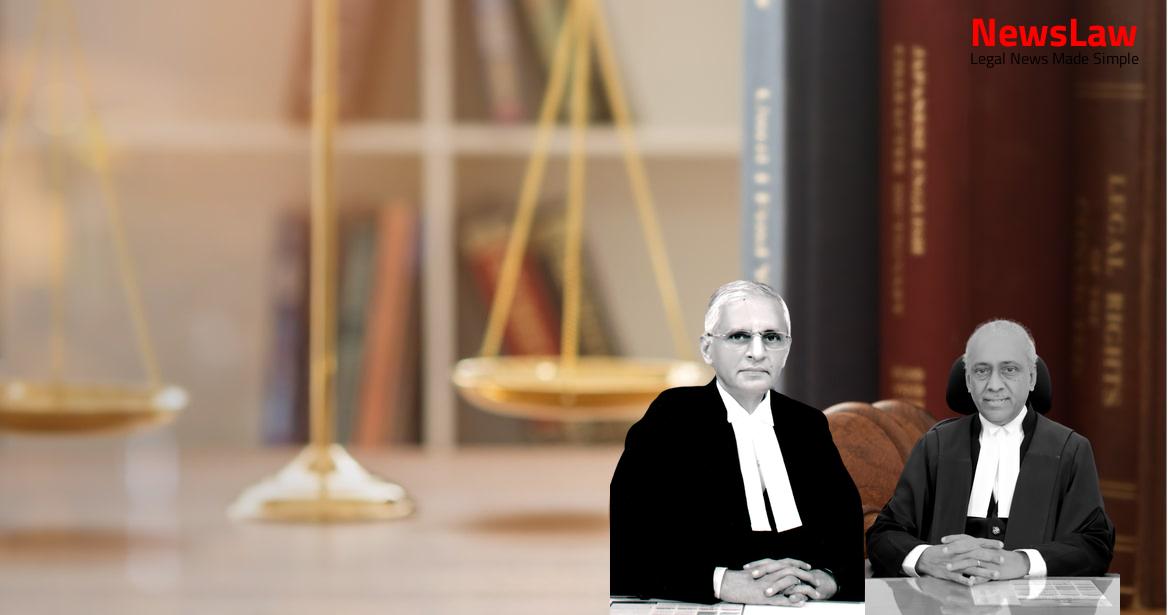Delve into a complex legal case where the jurisdiction of consumer forums clashes with a statutory remedy provided in telecom laws. The court’s analysis focuses on the interplay between special statutes and consumer protection laws, offering valuable insights into how legal remedies are interpreted and applied in such complex cases.
Facts
- Complainant had a post-paid mobile connection with a monthly basic rent of Rs 249.
- Complainant subscribed to an ‘auto pay’ system through a credit card for timely bill payments.
- The respondent denied excessive use of the connection, including internet facilities.
- Complaint filed citing deficiency of service against the appellant.
- District Consumer Disputes Redressal Forum dismissed the application, seeking a written statement from the appellant.
- Appellant raised objection to maintainability based on court precedent in General Manager, Telecom v. M Krishnan.
- Complainant sought compensation of Rs 22,000 with interest in the consumer complaint.
- Credit limit for post-paid mobile connection was Rs 2,300 initially, raised to Rs 2,800 for the billing on 8 December 2013.
- The SCDRC relied on a letter from the Department of Telecommunication dated 24 January 2014 as a basis for its decision.
- It was stated in the letter that the judgment in M Krishnan (supra) would not apply to a private service provider as it is not considered a ‘Telegraph Authority’.
- The SCDRC ordered on 30 November 2015 that the issue of jurisdiction could be raised as a preliminary issue.
- The NCDRC upheld the SCDRC’s decision in its judgment dated 26 May 2016.
- The matter was further taken to the State Forum for revision, with reference being made to the case of Bharthi Hexacom Ltd. v. Komal Prakash.
Also Read: Electoral Malpractices in Mayor Election
Issue
- The principal issue for determination is whether the remedy under Section 7B of the Act of 1885 ousts the jurisdiction of the consumer forum under the Consumer Protection Act 1986.
- Section 11 of the Act of 1986 delineates the jurisdiction of the District Forum.
- Section 11(1) specifies the jurisdiction of the District Forum, conferring it with the power to entertain complaints within specified limits.
Also Read: Balancing Power and Transparency: Electoral Bonds Struck Down, Disclosure Mandated
Arguments
- Section 7B of the Act of 1885 provides a statutory remedy of arbitration.
- The definitions of ‘telecom officer’ in Section 3(2) and ‘telegraph authority’ in Section 3(6) were referred to by counsel.
- The statutory remedy being under a special statute, the jurisdiction of the consumer forum is claimed to be ousted.
Also Read: Recall of Resolution Plan Approval: Legal Analysis
Analysis
- Section 3 of the Act of 1986 states that its provisions are in addition to and not in derogation of any other enactment.
- The Act aims to provide better protection for consumer interests.
- The definition of ‘service’ in the Act is broad and not exhaustive.
- The Act of 1986 and its successor, the Act of 2019, both aimed at protecting consumer interests.
- An arbitration agreement under the Arbitration and Conciliation Act 1996 does not remove the jurisdiction of the consumer forum.
- The District Forum has jurisdiction over complaints within specified thresholds of value.
- The Act specifies that remedies under it are in addition to remedies available in other statutes.
- The Act of 2019 includes telecom services in its jurisdiction for consumer complaints.
- Section 4 of the Act of 1885 grants the Central government the exclusive privilege to establish, maintain, and operate telegraphs.
- The Central Government can grant licenses to individuals or entities to establish, maintain, or operate telegraphs in India.
- Section 7B allows for arbitration of disputes related to telegraph lines, appliances, or apparatus between the telegraph authority and the beneficiary of such services.
- In the context of telecommunication services, the Telegraph Rules govern all services related to telephones.
- The doctrine of election allows parties to choose between available remedies for the same relief, as long as the remedies are not fundamentally different in scope.
- The Act of 1986 is considered a special law providing protection to consumers, offering remedies in addition to those available under other statutes.
- The Act of 1986 is highlighted as a special remedy for consumers, complementary to other remedies like arbitration.
- A case involving the disconnection of a telephone connection due to non-payment of bills led to proceedings up to the Full Bench of the Kerala High Court.
- Judgments and observations of various cases, including M Krishnan and IREO Grace Realtech (P) Ltd., reiterated the significance of the Act of 1986 as a special law for consumer protection.
- The expression ‘telecom services’ inserted in Section 2(42) of the Act of 2019 does not exclude telecom services from the jurisdiction of consumer forums under the Act of 1986.
- The Act of 1986 had a broad definition of ‘service’ in Section 2(o) which encompassed services of all types, including telecom services.
- The National Consumer Disputes Redressal Commission (NCDRC) affirmed that District Forums have jurisdiction to handle complaints involving telecom services.
Decision
- Pending applications disposed of
- Appeal dismissed
- Appeals allowed in view of judgment in Idea Cellular Ltd vs Ajay Kumar Agarwal
- Impugned judgments and orders of NCDRC set aside
- Consumer complaints restored to Consumer Disputes Redressal Forum, Kasargod
Case Title: M. LAKSHMAN BHAKTA Vs. VODAFONE IDEA LTD. (2022 INSC 189)
Case Number: C.A. No.-001389-001389 / 2022



